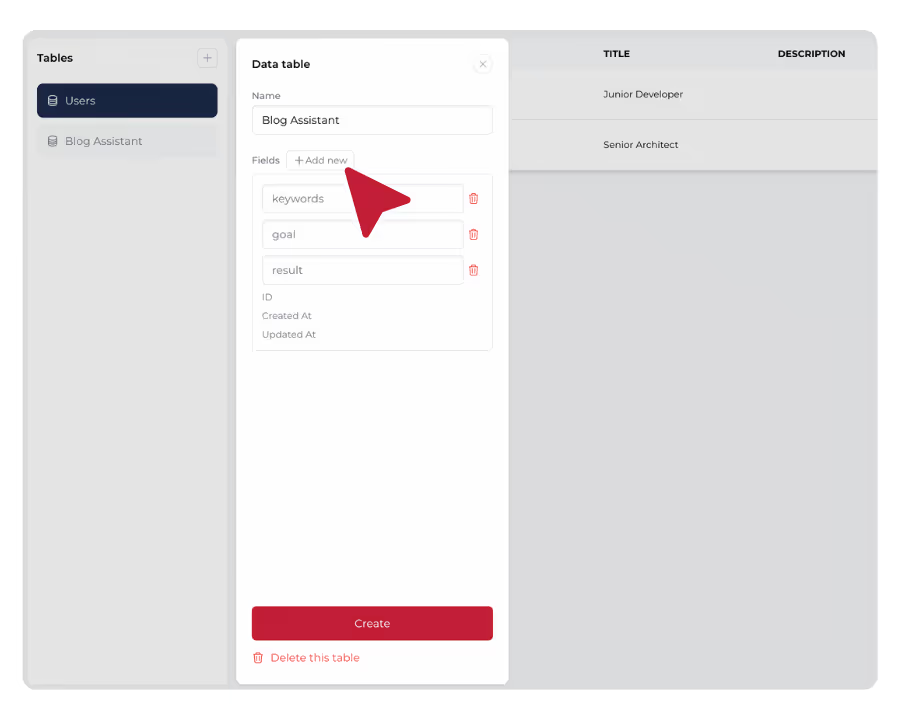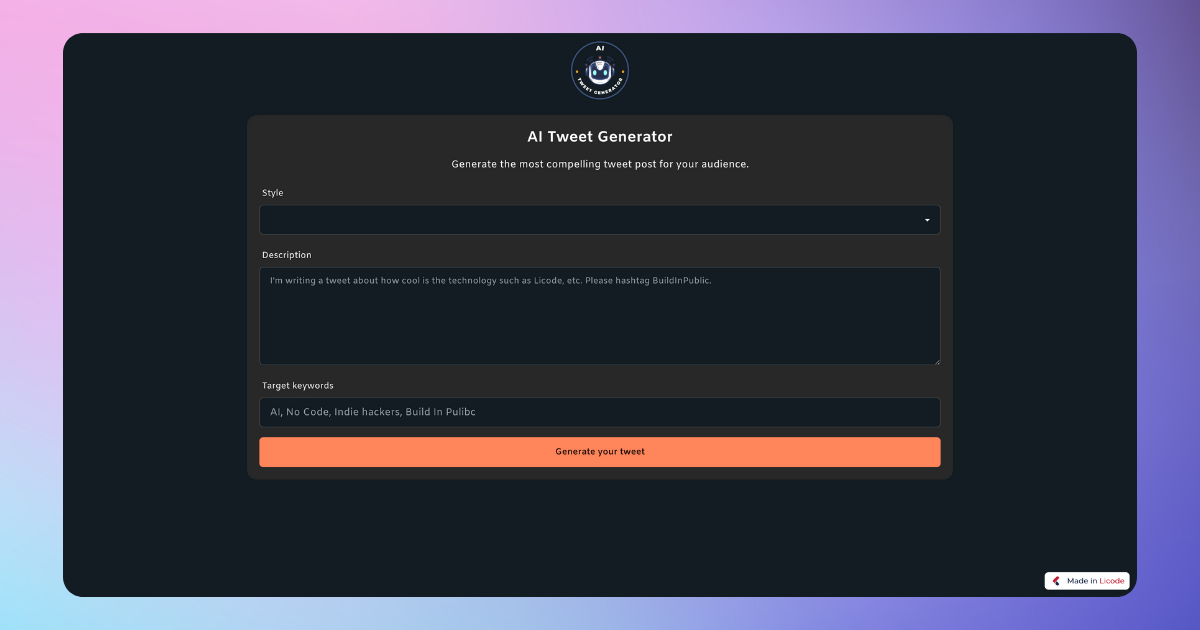Llama API for Text Similarity Analysis
Transforming text similarity insights with Llama API.
Understanding Text Similarity Analysis
Text similarity analysis is a vital tool for mining insights from vast volumes of written content. It helps in identifying semantically similar texts which can drive informed decision-making. In 2025, the ability to interpret and compare text effectively becomes crucial for businesses aiming to harness machine learning insights.
Llama API serves as a powerful tool for text similarity analysis by leveraging deep learning models. It assists in identifying duplicate content, analyzing sentiment similarities, and understanding contextual nuances in large datasets. This enables marketers, data analysts, and researchers to optimize their strategies effectively.
Why Llama API is Essential in 2025
The landscape of digital content is constantly evolving. By 2025, it becomes increasingly important for businesses and individuals to manage the overflow of information efficiently. Llama API offers a scalable solution, allowing users to integrate text similarity capabilities seamlessly into their applications, enhancing everything from customer service chatbots to content recommendation engines.
For instance, companies can implement text similarity analysis to improve user experience on e-commerce platforms by suggesting related products or by optimizing search functionality. This adaptability ensures that businesses can remain competitive and relevant in the digital marketplace.
Implementing Your Custom AI Model with Llama
With the Llama API, developing a customized AI model that understands your unique data becomes straightforward. This involves integrating the API into your existing systems, training it with your data to refine its text similarity predictions, and continually updating the model with new data insights.
One platform that assists in creating these AI-powered applications is Appaca. Appaca can help you build AI products, like intelligent customer support systems or personalized marketing tools, by leveraging the text similarity powers of Llama API.
What makes it special
Improves Data Insights
Using Llama API enhances understanding of large data sets, enabling better decision-making.
Enhances User Experience
Analyzing text similarities helps in tailoring personalized user experiences on digital platforms.
Ensures Competitive Edge
Empowering applications with similarity analysis keeps businesses ahead in evolving markets.
Steps to Build Your AI Product with Llama API
Follow these steps to create a tailored AI solution using Llama API:
- Identify Your Unique Value Proposition: Determine what makes your business unique and how it can benefit your audience.
- Imagine AI Applications: Brainstorm how AI can leverage your value proposition to address customer needs effectively.
- Create an Account on an App-Building Platform: Register on platforms like Appaca to start developing your AI capability.
- Prepare Background Knowledge: Organize your business knowledge as files or webpages to integrate it with AI.
- Select the Right LLM: Choose a suitable language model that aligns with your data requirements and upload your background knowledge.
- Build the App Interface: Design an intuitive interface that interacts with your AI model effectively.
- Add Extra Features: Integrate additional functionalities such as sentiment analysis or content recommendations.
- Market Your AI Solution: Promote your new AI-backed product to reach your potential audience effectively.
Trusted by incredible people at







Enable AI in your app
Licode comes with built-in AI infrastructure that allows you to easily craft a prompt, and use any Large Lanaguage Model (LLM) like Google Gemini, OpenAI GPTs, and Anthropic Claude.


Supply knowledge to your model
Licode's built-in RAG (Retrieval-Augmented Generation) system helps your models understand a vast amount of knowledge with minimal resource usage.
Build your AI app's interface
Licode offers a library of pre-built UI components from text & images to form inputs, charts, tables, and AI interactions. Ship your AI-powered app with a great UI fast.


Authenticate and manage users
Launch your AI-powered app with sign-up and log in pages out of the box. Set private pages for authenticated users only.
Monetize your app
Licode provides a built-in Subscriptions and AI Credits billing system. Create different subscription plans and set the amount of credits you want to charge for AI Usage.


Accept payments with Stripe
Licode makes it easy for you to integrate Stripe in your app. Start earning and grow revenue for your business.
Create custom actions
Give your app logic with Licode Actions. Perform database operations, AI interactions, and third-party integrations.


Store data in the database
Simply create data tables in a secure Licode database. Empower your AI app with data. Save data easily without any hassle.
Publish and launch
Just one click and your AI app will be online for all devices. Share it with your team, clients or customers. Update and iterate easily.

Browse our templates

StrawberryGPT
StrawberryGPT is an AI-powered letter counter that can tell you the correct number of "r" occurrences in "Strawberry".

AI Tweet Generator
An AI tool to help your audience generate a compelling Twitter / X post. Try it out!

YouTube Summarizer
An AI-powered app that summarizes YouTube videos and produces content such as a blog, summary, or FAQ.
Don't take our word for it
I've built with various AI tools and have found Licode to be the most efficient and user-friendly solution. In a world where only 51% of women currently integrate AI into their professional lives, Licode has empowered me to create innovative tools in record time that are transforming the workplace experience for women across Australia.
Licode has made building micro tools like my YouTube Summarizer incredibly easy. I've seen a huge boost in user engagement and conversions since launching it. I don't have to worry about my dev resource and any backend hassle.
FAQ
What is text similarity analysis?
Text similarity analysis involves comparing multiple text samples to determine their semantic likeness. It uses algorithms to quantify similarities in meaning, tone, or subject matter, helping in various applications such as plagiarism detection, sentiment analysis, and recommendation systems.
How does Llama API perform text similarity analysis?
The Llama API uses advanced deep learning models to evaluate the semantic similarities between text data. By incorporating machine learning techniques, it accurately identifies similar phrases, sentences, or documents even if they use different wording or expressions, making it useful for data analysis, content curation, and customer personalization.
Why use Llama API over other tools?
Llama API offers a robust yet scalable solution tailored for advanced text similarity analysis. It seamlessly integrates with existing systems, requires minimal setup, and delivers precise results using state-of-the-art AI techniques. This makes it preferable for businesses looking to improve data-driven decisions and enhance digital experiences.
Can Llama API be integrated with existing applications?
Yes, Llama API is designed for easy integration with existing applications. Developers can access its features via a simple API call, allowing them to incorporate powerful text similarity functions into their software, enhancing capabilities like content recommendation, search optimization, and semantic analysis.
Do I need any technical skills to use Licode?
Not at all! Our platform is built for non-technical users.
The drag-and-drop interface makes it easy to build and customize your AI tool, including its back-end logic, without coding.
Can I use my own branding?
Yes! Licode allows you to fully white-label your AI tool with your logo, colors, and brand identity.
Is Licode free to use?
Yes, Licode offers a free plan that allows you to build and publish your app without any initial cost.
This is perfect for startups, hobbyists, or developers who want to explore the platform without a financial commitment.
Some advanced features require a paid subscription, starting at just $20 per month.
The paid plan unlocks additional functionalities such as publishing your app on a custom domain, utilizing premium large language models (LLMs) for more powerful AI capabilities, and accessing the AI Playground—a feature where you can experiment with different AI models and custom prompts.
How can I monetize my AI app?
Licode offers built-in monetization tools that make it simple to generate revenue. You can create subscription plans, set up tiered access, or offer one-time payments for extra AI credits or premium features.
Monetization is powered by Stripe, ensuring secure, seamless payments. Setting up your Stripe account takes only a few minutes, so you can start earning quickly with minimal effort.
Is my data safe with Licode?
We take data security and privacy very seriously with Licode.
All data stored in your app's databases and in your AI model's instructions are encrypted and cannot be retrieved by our teams or by the LLM providers like OpenAI, Google, and Anthropic.
We have implemented GDPR-compliant rules within our systems to ensure that you can always reclaim all data you have uploaded, and that none of your information can be accessed without your prior consent.
In addition, we work with cybersecurity professionals to ensure that all data is hosted and encrypted on a secure server managed by AWS.
How do I get started with Licode?
Getting started with Licode is easy, even if you're not a technical expert.
Simply click on this link to access the Licode studio, where you can start building your app.
You can choose to create a new app either from scratch or by using a pre-designed template, which speeds up development.
Licode’s intuitive No Code interface allows you to build and customize AI apps without writing a single line of code. Whether you're building for business, education, or creative projects, Licode makes AI app development accessible to everyone.
What kind of experience will my audience have with the AI app?
Your app will feel like a personalized extension of your content.
Users can interact with the AI based on the resources you provide, making the experience feel like they’re engaging directly with your expertise.

